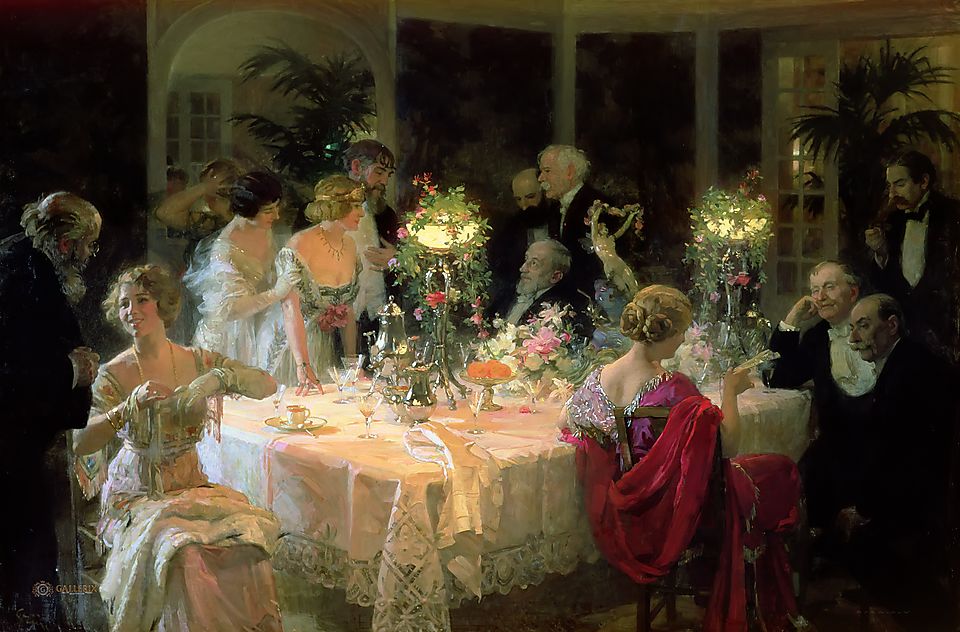Table of Contents
ToggleIntroduction
Bliss Summary And Themes By Katherine Mansfield Katherine Mansfield (1888-1923), a New Zealand-born writer, is widely regarded as one of the pioneers of modernist short fiction. Her stories often explore themes of personal identity, human relationships, social expectations, and the complexities of inner life. Mansfield’s ability to capture moments of emotional tension and the subtleties of human consciousness makes her work stand out as an exploration of the often unspoken undercurrents of everyday life.
One of Mansfield’s most notable and frequently anthologized works is the short story Bliss, first published in 1920. This story, set in a small, seemingly idyllic domestic setting, is a masterful exploration of personal self-deception, emotional complexity, and the sudden, devastating revelation of a truth that undermines the protagonist’s sense of happiness and stability.
Summary of Bliss by Katherine Mansfield
Bliss centers around Bertha Young, a seemingly content and well-to-do woman who is experiencing an almost transcendent moment of happiness. The story opens with Bertha’s feelings of bliss as she prepares to host a dinner party with her husband, Harry. They live in a pleasant suburban house, and Bertha is particularly delighted by her life at this moment. She believes herself to be surrounded by love, peace, and domestic bliss. The story conveys a sense of optimism and cheer as Bertha moves through her day, eagerly anticipating the evening’s gathering.
As Bertha reflects on her life, we learn that she has a deep sense of fulfillment in her marriage to Harry and in her domestic life. Their home is a sanctuary, and Bertha seems entirely convinced that all is perfect. However, her emotional equilibrium is soon disrupted by a series of small events that will lead to a devastating revelation.
Read more
Bertha is particularly fond of her gardener, Eddie, who has worked for them for a long time. She often finds herself preoccupied with the idea that Eddie, a young man of humble background, is more than just a servant—she imagines him as a figure who shares her idealized vision of the world. This momentary focus on Eddie becomes an important part of the story’s tension.Bliss Summary And Themes By Katherine Mansfield
As the evening progresses, Bertha is joined by her guests, including her close friend, Pearl Fulton, who, unbeknownst to Bertha, plays a significant role in the story’s unfolding. During the dinner party, Bertha is distracted by the sound of laughter coming from the garden and, upon investigating, finds something that shocks her to the core. To her dismay, she discovers that Eddie, the gardener, and her husband, Harry, are involved in an intimate moment.
This revelation shatters Bertha’s perception of her life. The bliss she had been feeling is replaced by a profound sense of confusion and betrayal. She is unable to reconcile the reality of what she has just witnessed with the idealized vision of her life that she had held so firmly. The story ends with Bertha in a state of shock, grappling with the implications of her discovery.Bliss Summary And Themes By Katherine Mansfield

Themes in Bliss by Katherine Mansfield
1. The Fragility of Happiness
At the heart of Bliss is the theme of the fragility of human happiness. Bertha’s bliss is fleeting and ultimately illusory. The story shows how happiness can be undermined by unexpected and often painful revelations.
Throughout the story, Bertha is convinced of the perfection of her life, but her bliss is interrupted by a harsh truth. This theme explores the precariousness of human emotional states and how even moments of great joy can be undone by unforeseen circumstances.Bliss Summary And Themes By Katherine Mansfield
Read more
2. Self-Delusion and the Illusion of Perfection
Bertha is a character who lives in self-delusion, believing that her life is perfect and that nothing can disrupt her sense of contentment. Her happiness is built on an idealized vision of her marriage, her family, and her domestic environment. However, this illusion is shattered when she discovers the affair between her husband and the gardener. Mansfield uses Bertha’s delusion to comment on the ways in which people often deceive themselves in order to maintain a sense of happiness, even when the truth is far more complex and painful.
3. Betrayal and Trust
The theme of betrayal is central to the plot of Bliss. Bertha’s discovery of the affair between Harry and Eddie is a betrayal on multiple levels: personal, emotional, and relational. Bertha feels betrayed not only by her husband but also by her perception of herself and her life. Her trust in the world and the people she loves is shattered. Mansfield highlights how betrayal can dismantle trust in both relationships and in one’s own understanding of reality.Bliss Summary And Themes By Katherine Mansfield
4. The Complexity of Human Relationships
Through Bertha’s relationships with her husband, Harry, and her friend Pearl, Mansfield explores the complexity of human connections. On the surface, Bertha’s relationship with Harry seems stable and loving, but the affair exposes the underlying tension and secrecy that had been present all along. The story also addresses the superficial nature of some friendships, as Bertha’s relationship with Pearl is marked by a lack of true understanding and honesty. The story suggests that human relationships are often more complicated than they appear, with hidden emotions and desires lurking beneath the surface.
5. The Role of Gender and Society’s Expectations
Mansfield also explores the roles that gender and societal expectations play in shaping the characters’ lives. Bertha, as a woman in the early 20th century, is expected to fulfill certain roles: she is a wife, a mother, and a hostess. Her happiness is tied to her fulfillment of these roles, and she believes that her marriage is the cornerstone of her life.
The story touches on the ways in which societal expectations, particularly regarding marriage and women’s roles within the domestic sphere, can influence individuals’ perceptions of their own happiness and self-worth. Bliss Summary And Themes By Katherine Mansfield

Conclusion
Bliss Summary And Themes By Katherine Mansfield Katherine Mansfield’s Bliss is a poignant and emotionally charged exploration of self-deception, the fragility of happiness, and the complexities of human relationships. Through the character of Bertha, Mansfield delves into the theme of how an idealized view of life can be shattered by painful revelations, particularly in the context of betrayal and societal expectations.
The story’s use of irony and its exploration of the complexity of human emotions make it a powerful and enduring work. Bliss remains a thought-provoking reflection on the tensions between inner desires, outward appearances, and the often painful truths that lie hidden beneath the surface of our lives.Bliss Summary And Themes By Katherine Mansfield
Read more
FAQ
Q1: What does the title Bliss signify in the story?
The title Bliss is deeply ironic. It refers to Bertha’s initial emotional state—she is overwhelmed by a sense of happiness and contentment at the beginning of the story. However, as the narrative unfolds, this bliss is revealed to be fragile and illusory. The title reflects Bertha’s internal state before the devastating truth is revealed, and it emphasizes the contrast between the bliss she feels and the painful reality that shatters it.
Q2: How does Bliss explore the theme of self-deception?
Bertha’s perception of herself and her life is built on self-deception. She believes her marriage is perfect, her life is fulfilling, and she is in complete control of her emotions and relationships. However, as the story progresses, Bertha’s idealized view of her life is shown to be an illusion. The affair between Harry and Eddie exposes the gap between Bertha’s self-perception and the truth, highlighting how people often deceive themselves to maintain a sense of happiness or stability.
Q3: What is the significance of Bertha’s reaction to discovering the affair?
Bertha’s reaction to the affair is one of complete shock and confusion. She is unable to process the betrayal and struggles to reconcile the truth with her earlier happiness. This moment of emotional turmoil underscores the theme of the fragility of happiness. Bertha’s inability to understand the reality of the situation reflects her deep emotional and psychological vulnerability. Mansfield suggests that when people are confronted with harsh truths, their entire worldview can collapse, leaving them in a state of emotional disarray.
Q4: How does Bliss address the theme of gender roles?
In Bliss, Mansfield explores the societal expectations placed on women, particularly in the context of marriage and domestic life. Bertha’s role as a wife and mother is central to her identity, and she derives a sense of worth from fulfilling these roles. Her happiness is tied to the idea that her marriage is perfect and that she is fulfilling her duties as a wife.
However, the story reveals the limitations of this idealized domestic role, as Bertha’s perception of her marriage is shattered by her husband’s infidelity. Mansfield critiques the way societal expectations of women’s roles can be constraining and how those roles often mask the complexity of human relationships.
Q5: What is the significance of the ending of Bliss?
The ending of Bliss is both poignant and unsettling. After the shocking revelation of the affair, Bertha is left in a state of emotional chaos. The final lines of the story—where Bertha, still grappling with the truth, is left in silence—underscore the themes of isolation, betrayal, and the loss of innocence. Mansfield leaves the reader with a sense of unresolved emotional turmoil, forcing us to confront the complexities of human emotions and the difficulty of accepting painful truths.
Read more
















